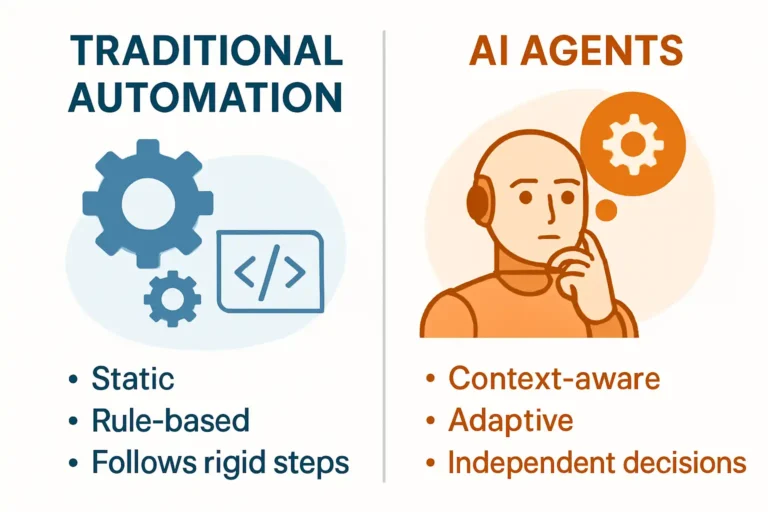Introduction to AI tools for research paper writing
As a researcher or academic writer, the process of crafting a well-researched and compelling paper can be daunting and time-consuming. Fortunately, the advent of artificial intelligence (AI) has brought forth a myriad of tools designed to streamline and enhance the research paper writing process. These AI-powered tools offer a range of functionalities, from automating tedious tasks to providing insightful analysis and suggestions. In this article, we will explore the top 10 AI tools for research paper writing, their benefits, and how to leverage them effectively.
Benefits of using AI tools for research writing
Incorporating AI tools into your research writing workflow can yield numerous advantages:
- Time Efficiency: AI tools can automate repetitive tasks, such as data gathering, formatting, and referencing, allowing you to focus on higher-level thinking and analysis.
- Improved Accuracy: AI algorithms can identify and correct errors, inconsistencies, and potential plagiarism issues, ensuring the integrity and quality of your research paper.
- Enhanced Organization: AI-powered tools can assist in structuring and organizing your thoughts, ideas, and research materials, making it easier to create a coherent and well-structured paper.
- Personalized Suggestions: AI algorithms can analyze your writing style and provide personalized suggestions for improvement, helping you refine your writing and communicate your ideas more effectively.
- Increased Productivity: By streamlining various aspects of the writing process, AI tools can boost your overall productivity, allowing you to focus on the substantive aspects of your research.
You May Also Like: 14 Best AI Writing Tools
Top 10 AI tools for research paper writing
- Grammarly: A widely popular writing assistant that uses AI to identify and correct grammar, spelling, punctuation, and style issues. It also provides suggestions for improving sentence structure, word choice, and tone.
- Jasper: An AI-powered writing assistant that can generate high-quality content, including research papers, articles, and essays. It can also assist with outlining, research, and citation management.
- Scrivener: A powerful writing software that utilizes AI to help you organize your research materials, outline your paper, and manage references and citations.
- Wordtune: An AI-powered writing companion that suggests alternative ways to rephrase your sentences, improving clarity, conciseness, and tone.
- Trinka AI: An AI-based research assistant that can help you find relevant sources, synthesize information, and generate summaries and outlines for your research paper.
- Notion AI: A versatile workspace tool that integrates AI capabilities for writing, research, and project management. It can assist with tasks like note-taking, citation management, and collaboration.
- Paperpile: A reference management tool that uses AI to streamline the process of finding, organizing, and citing academic sources.
- Researcher: An AI-powered research tool that helps you discover relevant academic literature, analyze data, and generate visualizations for your research paper.
- Scispace: An AI-driven writing assistant specifically designed for scientific and academic writing. It can help with tasks like formatting equations, creating figures, and ensuring compliance with journal guidelines.
- Writefull: An AI-powered writing assistant that can help you improve your academic writing by providing feedback on grammar, style, and clarity, as well as suggestions for restructuring sentences and paragraphs.
You may Also Like: 7 Best Free Ai Tools For Email Writing
Comparison of the best free AI tools for research paper writing
While many AI tools for research paper writing offer premium paid plans, several free options are available for those on a budget. Here's a comparison of some of the best free AI tools for research paper writing:
| Tool | Key Features | Limitations |
|---|---|---|
| Grammarly (Free Version) | Grammar and spelling checks, basic writing suggestions | Limited features compared to premium version |
| Wordtune (Free Trial) | Sentence rephrasing suggestions, tone adjustments | Limited usage without subscription |
| Paperpile (Free Plan) | Reference management, citation formatting | Limited cloud storage and collaboration features |
| Researcher (Free Plan) | Literature search, citation management | Limited access to full-text articles |
| Writefull (Free Trial) | Writing feedback, style improvements | Limited usage without subscription |
It's important to note that while free AI tools can be valuable resources, they may have limitations in terms of features, usage limits, or functionality compared to their paid counterparts.
AI research paper writers with references
Several AI tools can assist with managing references and citations, ensuring that your research paper adheres to academic standards and avoids plagiarism. Here are some examples:

- Paperpile: This AI-powered reference management tool can automatically extract and format citations from various sources, including websites, PDFs, and academic databases. It integrates seamlessly with popular writing software like Microsoft Word and Google Docs.
- Zotero: While not strictly an AI tool, Zotero is a powerful open-source reference management software that can help you organize and cite your sources. It offers features like automatic citation formatting, note-taking, and collaboration tools.
- Scrivener: In addition to its writing and organization capabilities, Scrivener also includes AI-powered reference management features. It can automatically format citations and generate bibliographies in various styles.
- Researcher: This AI-powered research tool can help you find relevant academic sources and automatically generate citations in various formats, making it easier to manage your references.
- Scispace: Designed specifically for scientific and academic writing, Scispace includes AI-powered citation management tools that can format references according to journal guidelines and style requirements.
By leveraging these AI tools, you can ensure that your research paper adheres to academic citation standards, reducing the risk of plagiarism and making it easier to manage and organize your references.
You May Also Like: 10 Best AI Tools For Blog Writing
How to choose the right AI tool for your research paper writing needs
With the abundance of AI tools available, choosing the right one for your research paper writing needs can be a daunting task. Here are some factors to consider:
- Writing Stage: Determine which stage of the writing process you need the most assistance with, such as ideation, research, organization, writing, or editing. Different AI tools may specialize in different aspects of the writing process.
- Subject Area: Some AI tools are designed specifically for certain subject areas, such as scientific or technical writing. If you're working in a specialized field, it may be beneficial to choose a tool tailored to your discipline.
- Integration: Consider how well the AI tool integrates with your existing writing software, reference management tools, and workflow. Seamless integration can improve efficiency and productivity.
- User-friendliness: Evaluate the user interface and overall user experience of the AI tool. A tool that is intuitive and easy to navigate can help you maximize its potential.
- Budget: Determine your budget and whether you prefer a free or paid AI tool. While free tools can be valuable, paid tools often offer more advanced features and functionality.
- Reviews and Recommendations: Read reviews and seek recommendations from colleagues or peers who have experience with various AI tools for research paper writing. Their insights can help you make an informed decision.
By carefully considering these factors, you can select an AI tool that aligns with your specific needs, writing style, and workflow, ultimately enhancing your research paper writing experience.
Tips for using AI tools effectively in research writing
While AI tools can be powerful allies in research paper writing, it's important to use them effectively to maximize their potential. Here are some tips to consider:
- Understand the Tool's Capabilities: Familiarize yourself with the features and limitations of the AI tool you're using. This will help you leverage its strengths and avoid misusing or overrelying on its capabilities.
- Maintain Critical Thinking: AI tools are designed to assist and enhance your writing, not replace your critical thinking and analysis. Always review and evaluate the suggestions and outputs provided by the AI tool.
- Customize and Personalize: Many AI tools offer customization options, such as adjusting settings, preferences, or writing styles. Take the time to personalize the tool to align with your specific needs and writing preferences.
- Integrate into Your Workflow: Seamlessly integrate the AI tool into your existing writing workflow. This can help streamline the process and ensure that you're utilizing the tool effectively throughout the various stages of research paper writing.
- Provide Feedback and Learn: As you use the AI tool, pay attention to its strengths and weaknesses. Provide feedback to the developers, and be open to learning and adapting your approach to using the tool more effectively.
- Maintain Academic Integrity: While AI tools can assist with tasks like citation management and plagiarism detection, it's crucial to maintain academic integrity and ensure that your work is original and properly attributed.
By following these tips, you can leverage the power of AI tools while maintaining control over the research paper writing process, ensuring that the final product reflects your expertise, critical thinking, and academic standards.
You May Also Like: 5 Best Free AI Writing Tools for Students
Common challenges and limitations of AI tools in research paper writing
While AI tools offer numerous benefits for research paper writing, it's important to be aware of their limitations and potential challenges:
- Bias and Inaccuracies: AI algorithms are trained on existing data, which may contain biases or inaccuracies. This can lead to the propagation of biases or the generation of incorrect information in the AI tool's outputs.
- Lack of Context and Nuance: AI tools may struggle to fully capture the context and nuances of academic writing, particularly in specialized or niche fields. This can result in suggestions or outputs that lack depth or fail to accurately convey complex ideas.
- Overreliance and Ethical Concerns: There is a risk of overrelying on AI tools, potentially leading to a diminished understanding of the research topic or a lack of original thought. Additionally, there are ethical concerns surrounding the use of AI-generated content, particularly in academic settings.
- Limited Customization: While many AI tools offer customization options, they may still have limitations in terms of adapting to individual writing styles, preferences, or specific research requirements.
- Integration Challenges: Integrating AI tools into existing workflows and software ecosystems can sometimes be challenging, leading to compatibility issues or disruptions in productivity.
- Cost and Access: While some AI tools offer free versions or trials, many advanced features and functionalities are available only through paid subscriptions, which may not be accessible to all researchers or institutions.
To mitigate these challenges and limitations, it's essential to approach AI tools with a critical mindset, maintain academic integrity, and use them as complementary tools rather than as replacements for human expertise and critical thinking.
AI research paper writers vs human writers: Pros and cons
As AI technology continues to advance, the debate surrounding the potential of AI research paper writers to replace human writers has gained momentum. Here, we explore the pros and cons of AI research paper writers compared to human writers:
Pros of AI Research Paper Writers:
- Efficiency: AI research paper writers can generate content at a much faster pace than human writers, potentially increasing productivity and meeting tight deadlines.
- Consistency: AI algorithms can maintain a consistent writing style, tone, and formatting throughout a research paper, ensuring coherence and adherence to guidelines.
- Objectivity: AI research paper writers are not influenced by human biases, emotions, or preconceptions, potentially leading to more objective and impartial writing.
- Cost-effectiveness: In the long run, AI research paper writers may be more cost-effective than hiring human writers, especially for large-scale or repetitive writing tasks.
You May Also Like: Best Free AI Tools for Coding
Cons of AI Research Paper Writers:
- Lack of Creativity and Original Thought: AI research paper writers are limited by their training data and algorithms, potentially lacking the creativity, critical thinking, and original insights that human writers can bring to the table.
- Contextual Understanding: AI tools may struggle to fully comprehend the nuances and complexities of academic research, leading to potential inaccuracies or oversimplifications.
- Ethical Concerns: The use of AI-generated content in academic settings raises ethical concerns regarding authorship, plagiarism, and the potential devaluation of human expertise.
- Limited Adaptability: AI research paper writers may have difficulty adapting to specialized or niche fields, as well as rapidly evolving research areas or methodologies.
- Lack of Human Touch: AI research paper writers cannot replicate the personal touch, empathy, and emotional resonance that human writers can bring to their writing.
Pros of Human Writers:
- Creativity and Critical Thinking: Human writers possess the ability to think critically, synthesize information, and generate original ideas and insights, which are essential for high-quality academic research.
- Contextual Understanding: Human writers have a deeper understanding of context, nuance, and the complexities of academic research, allowing them to convey ideas effectively and accurately.
- Adaptability: Human writers can adapt to specialized fields, evolving research areas, and unique writing styles or requirements with relative ease.
- Emotional Connection: Human writers can infuse their writing with emotion, empathy, and personal experiences, creating a stronger connection with the reader.
- Ethical Considerations: Human writers adhere to ethical principles and academic integrity, ensuring that their work is original, properly attributed, and free from plagiarism.
While AI research paper writers offer advantages in terms of efficiency, consistency, and potential cost-effectiveness, human writers remain invaluable for their creativity, critical thinking, contextual understanding, and ability to maintain academic integrity. The ideal approach may involve a balanced combination of AI tools and human expertise, leveraging the strengths of both to produce high-quality, insightful, and ethically sound academic research.
Conclusion: The future of AI in research paper writing
The integration of AI tools into the research paper writing process is an exciting and rapidly evolving field. As AI technology continues to advance, we can expect to see more sophisticated and capable tools that can assist researchers and academic writers in various aspects of their work.
However, it's important to recognize that AI tools are not a panacea or a replacement for human expertise and critical thinking. Rather, they should be viewed as powerful assistants that can enhance and streamline the writing process, freeing up time and cognitive resources for researchers to focus on the substantive aspects of their work.
Moving forward, the future of AI in research paper writing will likely involve a symbiotic relationship between human writers and AI tools. AI algorithms will continue to improve in their ability to understand context, generate coherent and insightful content, and adapt to specialized fields and evolving research areas. At the same time, human writers will remain crucial for their creativity, critical thinking, and ability to maintain academic integrity and ethical standards.
As AI tools become more prevalent in academic settings, it will be essential to establish clear guidelines and best practices for their use, ensuring that they are leveraged in a responsible and ethical manner. This may involve developing frameworks for evaluating the quality and accuracy of AI-generated content, as well as addressing issues related to authorship, plagiarism, and the potential devaluation of human expertise.
Ultimately, the future of AI in research paper writing holds great promise, but it will require a careful balance between embracing technological advancements and preserving the core values and principles that underpin academic research and scholarly inquiry.To elevate your research paper writing experience, explore the vast array of AI tools available and discover how they can streamline your workflow, enhance your productivity, and unlock new levels of academic excellence. Don't hesitate to embark on this transformative journey – embrace AI as your ally and unlock the full potential of your research endeavors.










